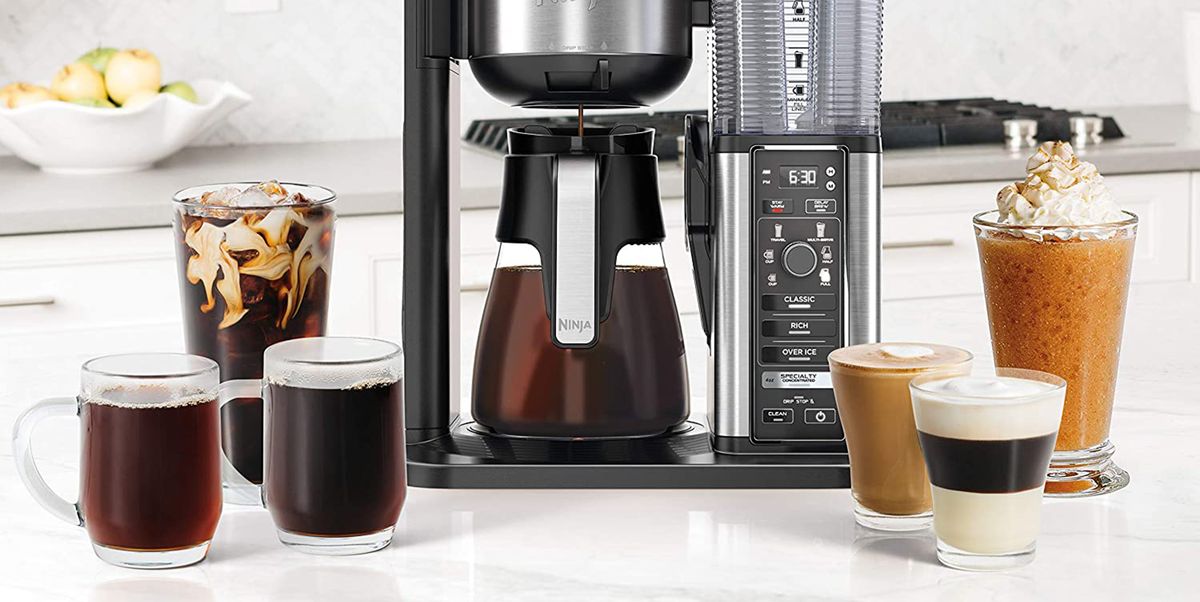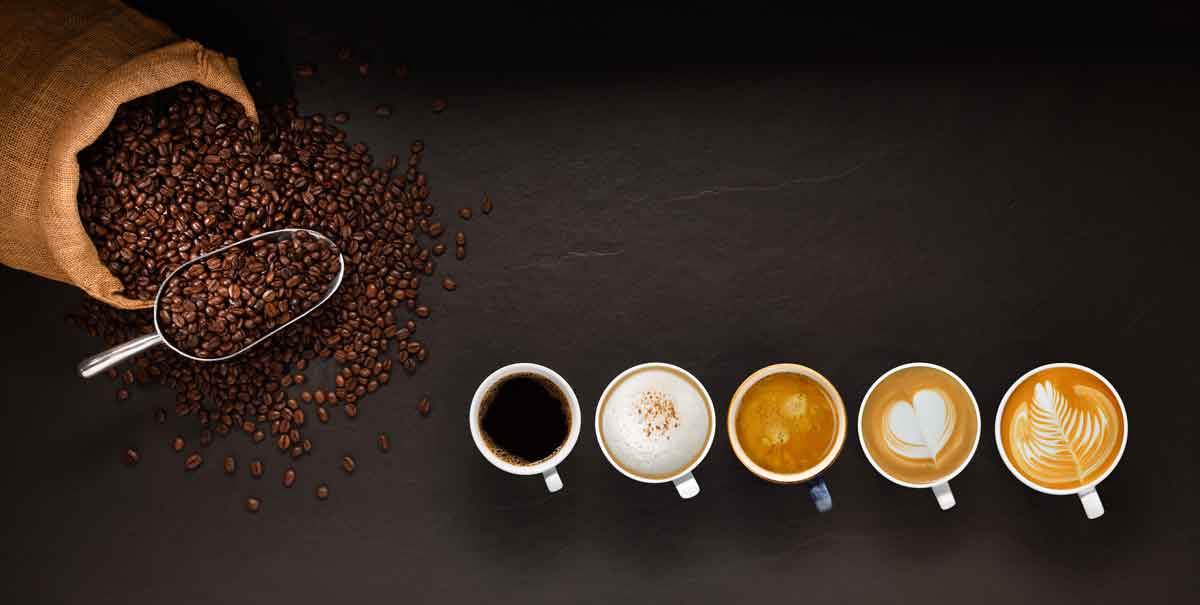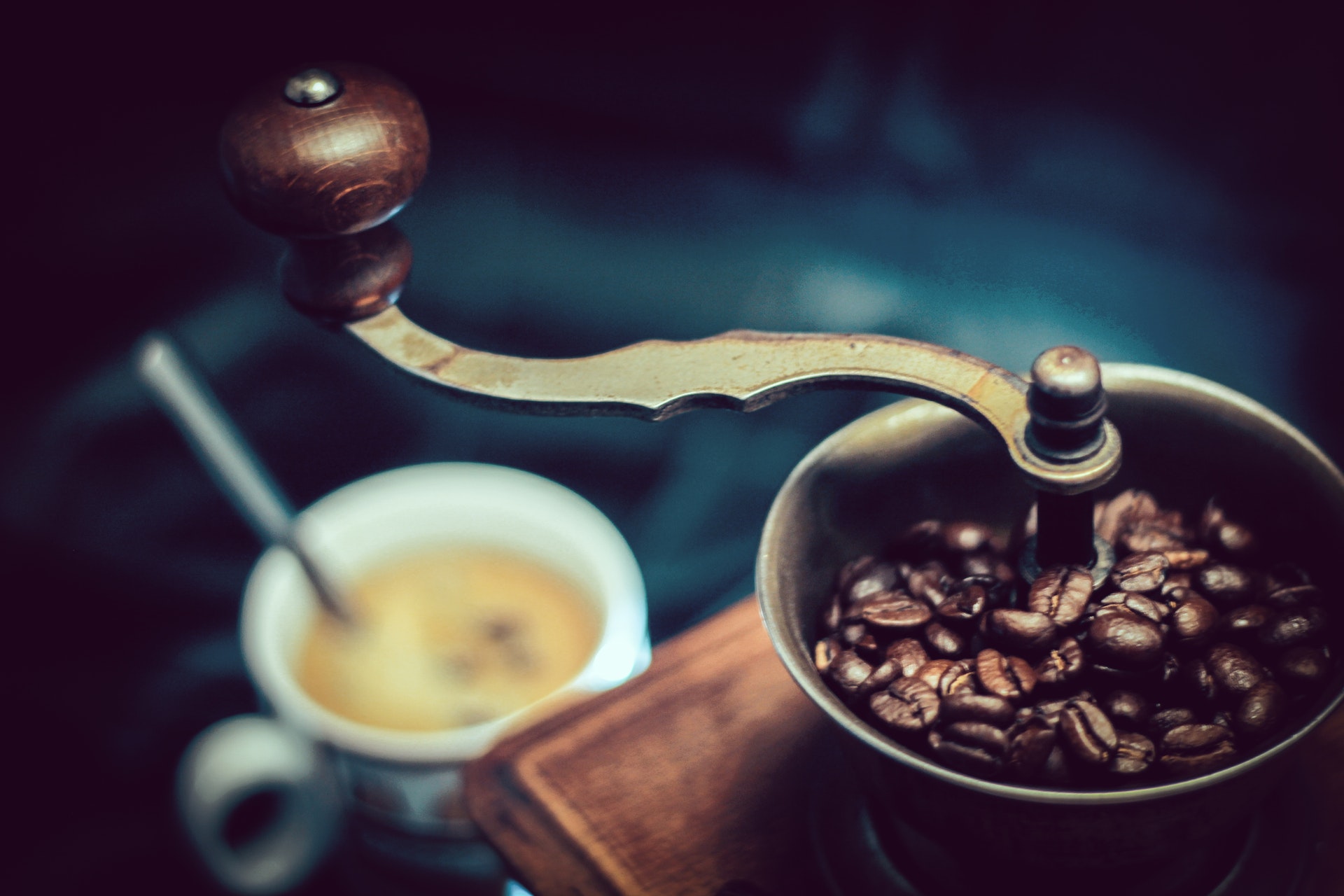Choosing the right coffee filter to use can make a world of difference. Although it may seem very simple, getting the right coffee filter can be quite tricky as there are several coffee filters to choose from. If you choose the right coffee filter for your brew, then you can definitely get the sort of quality you’re looking for.
Most coffee lovers understand the importance of a good coffee filter when brewing the perfect cup. Just as with most things in life, good quality coffee filters provide the perfect barrier that prevents coffee grounds from mixing in with your cup of coffee.
These life-saving barriers are made from a diversity of materials with specific use to each. Though the functionality is basically the same, the way in which the filters react with your coffee will slightly differ.
In this article, we will be discussing the common different types of coffee filters, their main differences, and some recommendations we can offer to you.
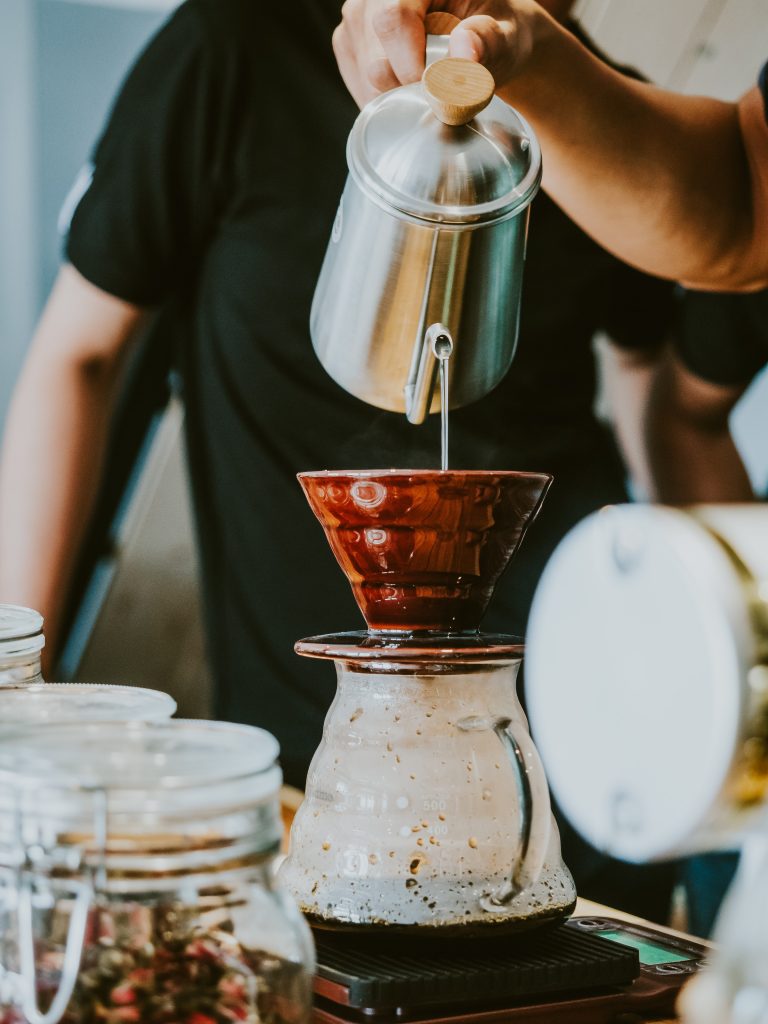
Types of Coffee Filters
Given the number of available choices and the differences between them, it can often get too confusing which type of coffee filter to choose.
The most common types of coffee filters are made from paper, metal, nylon, cloth, or charcoal. Choosing the type of coffee filter will greatly depend on your coffee maker’s specifications. In the event that more than one type of coffee filter can be used, it’s up to your personal preference which one to choose.
This sections aims to give you a clearer understanding of the different types of coffee filters.
Paper Filters
As one of the most economical, simple and widely known ways to filter your coffee, a paper filter can easily be found anywhere and can be bought in bulk. It’s advisable to buy in bulk to save money.
Using a paper filter is extremely easy. It only takes a few seconds to put them in place. Right after use, you can immediately throw them to the bin.
Paper filters deliver a light and clear coffee cup, ideal for those that love a coffee that is slightly less embodied and thick. The paper filter blocks out many of the smaller grains and oils, which helps in delivering an excellent beverage.
Since they come in several sizes and shapes, you have to refer to the exact model required by your coffee maker, which sometimes can make the search slightly harder.
Bleached or Unbleached
A paper filter usually comes in two different types – bleached and unbleached. A bleached coffee filter is processed with the use of chlorine or oxygen. Chlorine has an increased negative impact on the environment which makes the bleached option less eco-friendly. On the other hand, an unbleached paper filter is processed without the paper being subject to any form of chemical treatment.

Metal Filters
The long-lasting metal coffee filter will be able to deliver a solid approach to your coffee indulgence for a longer period of time.
Unlike paper filters, there is no need to change the filter after every use. You only need to wash the metal filter and you’re ready to go again!
Metal filters offer some of the best and most embodied coffee experience because they let through micro-grounds and oils. As weird as it may seem, you drink micr0-grounds and oils when using a metal filter. The natural oil of coffee is responsible for the aroma that coffee can have. In terms of texture, these oils are barely noticeable.
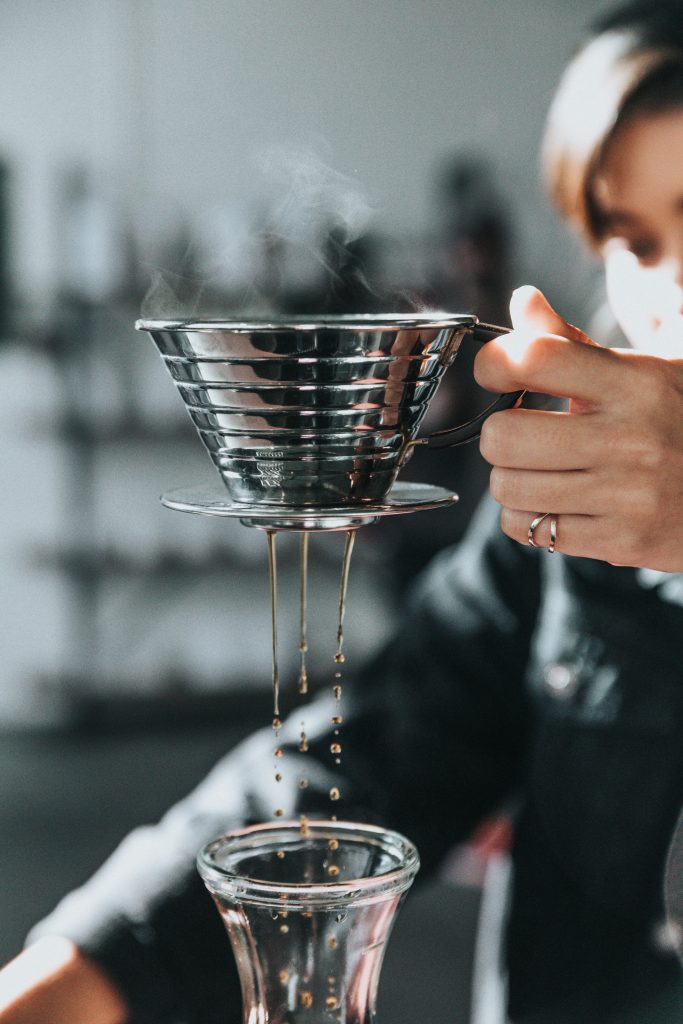
Nylon Filters
Similar to metal filters in terms of consistency, nylon filters are made from nylon mesh mounted on a plastic basket. They are cheaper than metal filters but are less durable. A nylon filter will often last a few months. After that, you will have to buy a replacement filter.
On the contrary, a nylon filter can deliver a decent cup of coffee. It provides some of the coffee’s rich oils and micro grounds through its composition.
Cloth Filters
Going old school is often a great experience when it comes to coffee filters. Using a cloth filter can be very fulfilling as it delivers a different kind of experience.
Cloth filters don’t come around as common as other options, but it can still deliver a unique and rich cup of coffee. Unlike paper filters, the cloth filter lets all the rich oils of your ground coffee to be part of the final result.
It also delivers an edge over metal filters as it lets through more micro grounds than a metal filter. The end result is a clean yet flavor-rich drink.
In terms of reusability, a cloth filter can deliver a dozen or so brews. Eventually, you will have to replace it with a new one. It is best to always have a spare cloth filter on hand.
Charcoal Filters
Charcoal is universally known for its incredible filtering capabilities. A charcoal filter removes chlorine, odors, impurities, and contaminants from the water. A charcoal filters works its way in the water that will be used for your cup of coffee.
The harder the water in your area, the more often you’ll need to replace your charcoal filter.
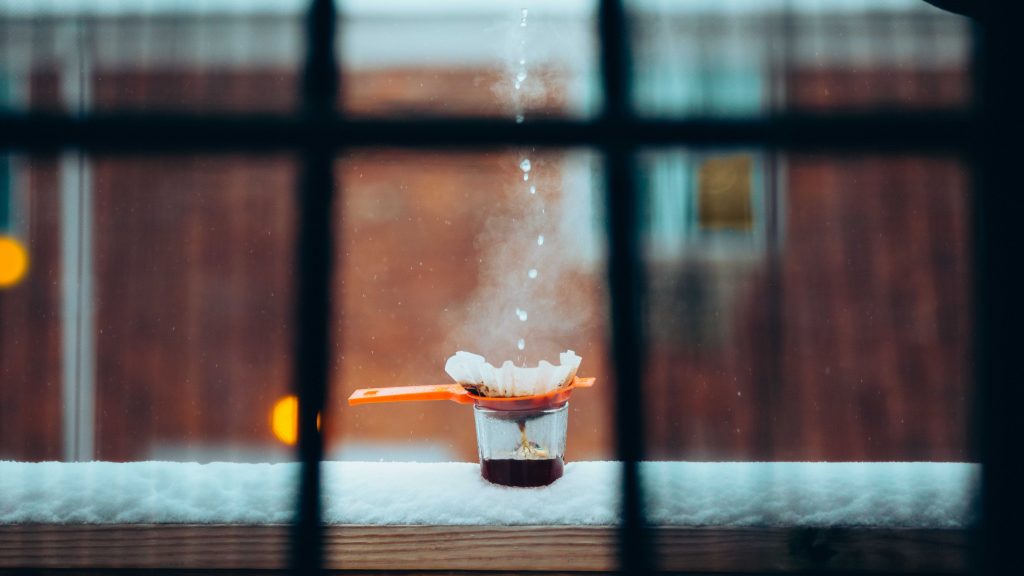
Differences in Coffee Filters
Coffee filters, as you may have already realized, come in several shapes, forms, and sizes. When choosing a coffee filter, you are basically limited by the specs of your coffee maker. If your coffee maker allows more than one type of coffee filter, then that’s great. If not, then you can stick with your current coffee maker or buy a new one.
Taste is surely the main concern when opting for a certain type of filter. For one, paper filters offer a clear and rich flavor. For people that enjoy a stronger mixture of specific oils, may opt for a metal filter. Ultimately, you choose the coffee filter based on the amount of sediment you like to include in your drink.
There are surely costs associated with whatever filter type you opt for. You may need to consider how often you drink coffee and the reusability of the filter.
Finally, take into consideration how convenient a specific coffee filter type may be, from its availability at your local store to its maintenance.
Best Coffee Filter for Drip Coffee
N0w that we’ve discussed about the different types of coffee filters in the above section, we will now recommend some of the best coffee filters for you.
LHS Pour Over Coffee Dripper Stainless Steel

Made from stainless steel, the LHS filter disregards the need for any paper or linen additions.
It is simple to use, with the user only needing to pour the hot water over their coffee ground. It is extremely easy to clean and reuse, making it ideal for those that have strong coffee drinking habits.
Pros
- Reusable for years to come
- Easy to clean and reuse
- Provides strong-flavored coffee
Cons
- Requires water to be poured rather slowly to get a stronger brew
Willow & Everett Drip Coffee Filter
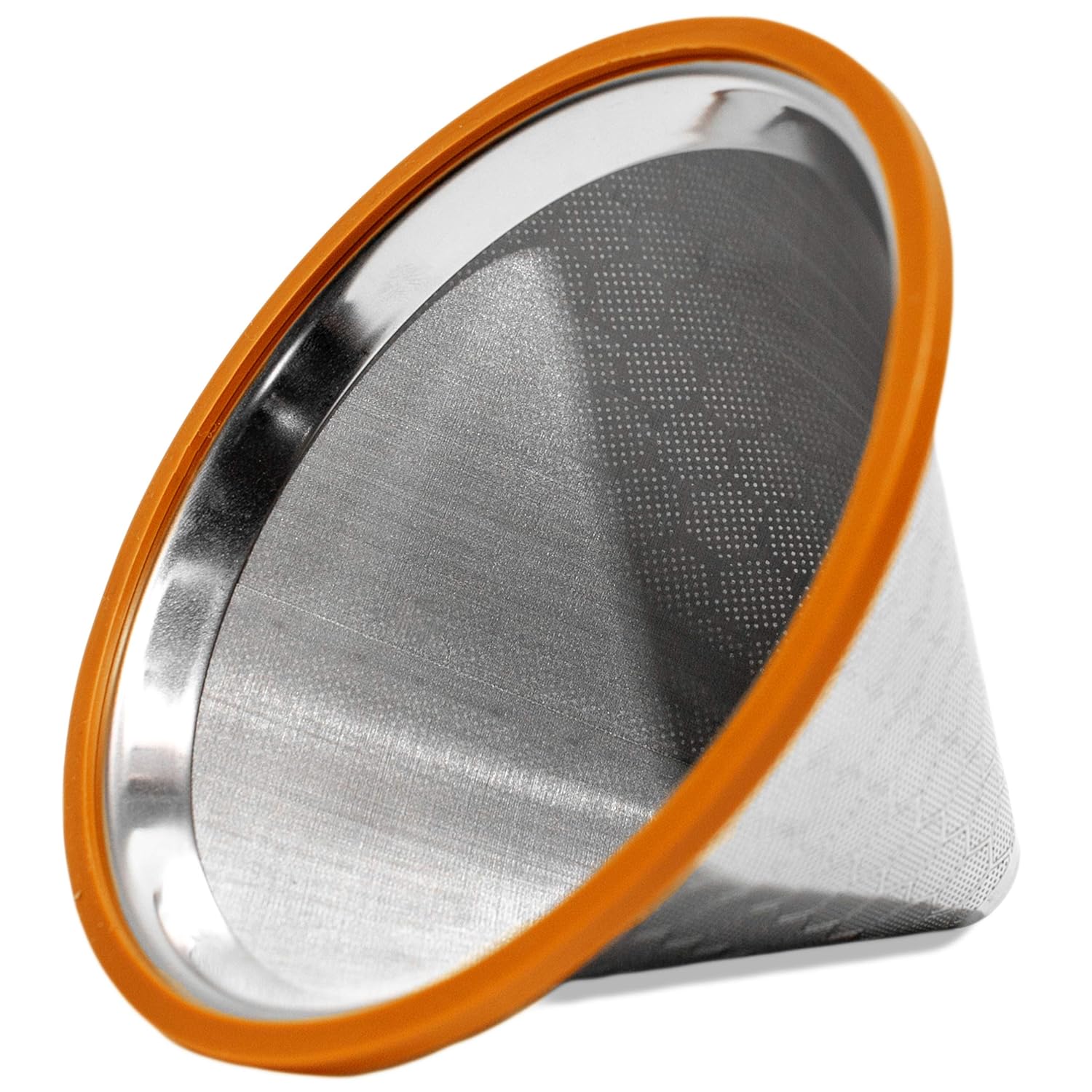
This dual filter is a great option for drip coffee offering two separate layers. It is easy to use, has great quality, and provides one of the most cost-effective and environmental friendly ways to indulge in a great brew at home.
Pros
- Dual filtering makes for a clearer, yet embodied and a strong cup
- Reusable, great for the environment
Cons
- May start clogging with use, especially if cleaning is ineffective
Sea to Summit X-Brew Coffee Dripper Filter

This BPA-free silicone filter provides enough capacity for two hot cups of coffee in the morning. It is dishwasher safe and will be a great option for those that have some environmental concern.
Pros
- Excellent build quality
- Provides a decent coffee cup once you get the ground right
Cons
- Given its silicone nature, you may have to perfect your grind
Should You Always Use a Coffee Filter?
The short answer is yes! Using a coffee filter will ensure that your cup of coffee is enjoyable and rich, and not a muddy mess. Coffee filters of all kinds focus in providing the right balance between a beverage that is strong and rich, yet still physically enjoyable to drink.
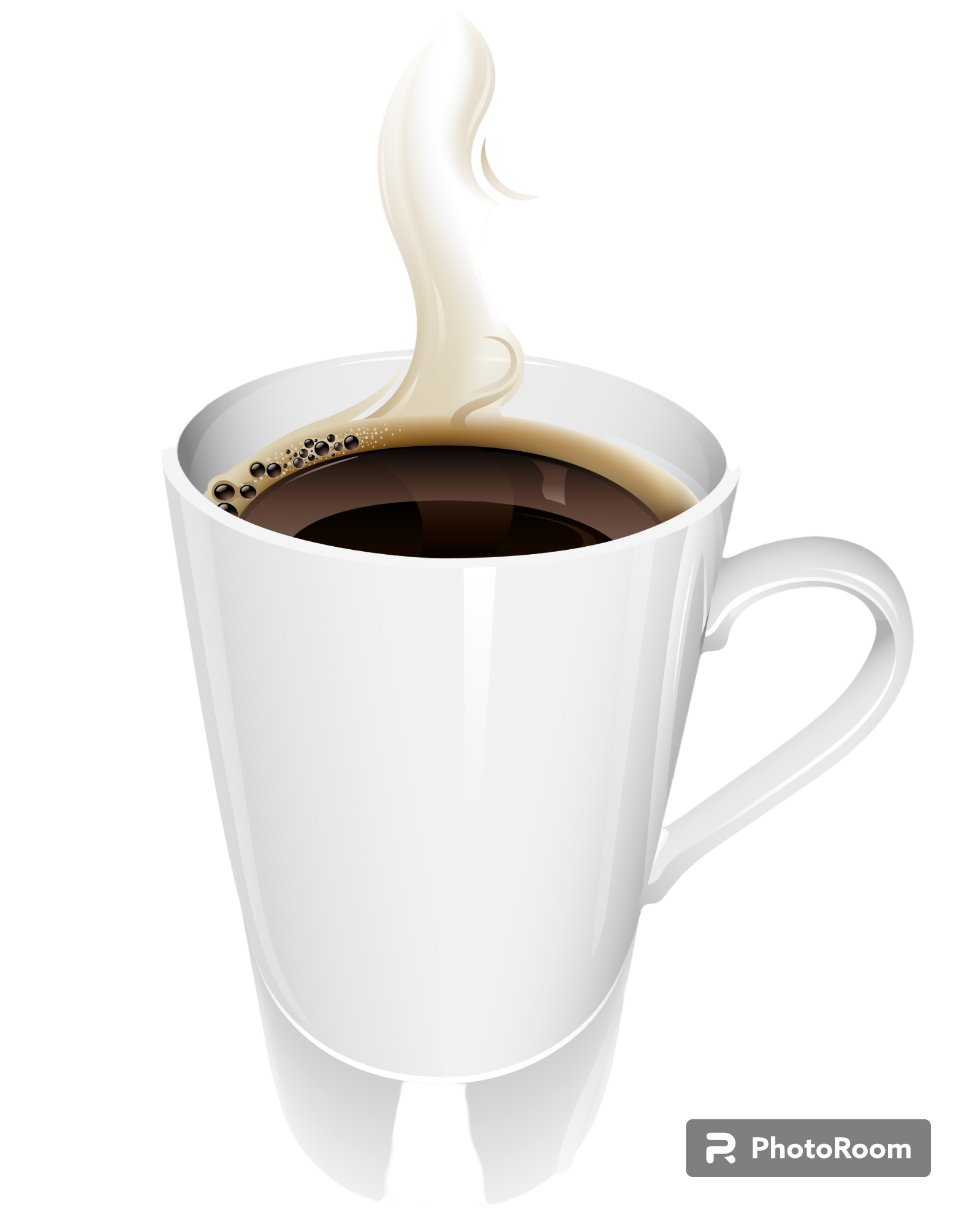
We provide tutorials and reviews on everything caffeinated.
Final Verdict
Coffee filters come in all sizes and shapes and are made from different materials. Its main goal is to filter out most of the grainy part and leave you with a rich, embodied beverage. To achieve this result, you should pick for the type of filter that most adapts to your coffee taste and the coffee maker you have.
There are several considerations to be taken such as environmental impact, cost, convenience and, most importantly, taste.
What’s your preferred type of coffee filter and why? Let’s us know below!
Related Articles
- How to Flavor Coffee Beans?
- Best Coffee Grinders for Coffee Lovers in 2020
- The Ultimate Guide to the Best Coffee in 2020
brewcaffeine

We provide tutorials and reviews on everything caffeinated.

